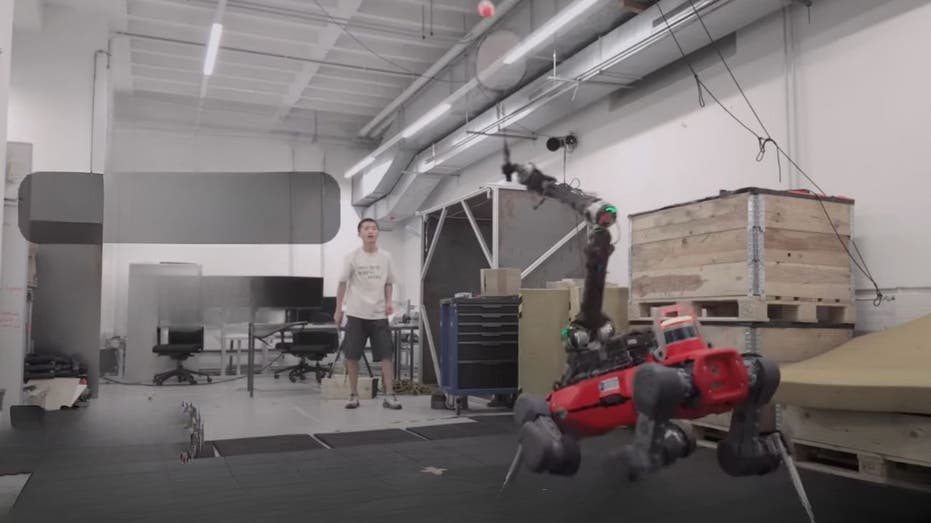1. Brain implant for epilepsy tested in 20-minute surgery

Paradromics, a neurotech company, recently implanted its brain-computer interface (BCI) in a human for the first time during routine epilepsy surgery at the University of Michigan. The quick 20-minute procedure marked a significant milestone for Paradromics after nearly a decade of development. The successful implantation demonstrated the device’s ability to record neural activity, paving the way for clinical trials to test its long-term safety and efficacy. The Connexus BCI by Paradromics is designed to help individuals with severe movement issues, such as paralysis, communicate by controlling computers with their thoughts. The device’s advanced features, including 421 microelectrodes and durable materials, enable precise signal capture and wireless transmission for seamless communication and control.
In summary, Paradromics achieved a groundbreaking milestone by implanting its brain-computer interface in a human for the first time, showcasing the device’s safety and functionality. The Connexus BCI’s innovative design and advanced technology offer hope for individuals with severe motor impairments to communicate and interact with the world using their thoughts. The successful implantation at the University of Michigan sets the stage for future clinical trials to further explore the device’s potential in improving the quality of life for people with conditions like ALS, spinal cord injury, or stroke.
2. What AI’s insatiable appetite for power means for our future

The article discusses how the rapid growth of artificial intelligence (AI) is straining energy resources, particularly in data centers that support AI operations. The energy demands of AI, driven by the need for powerful hardware like GPUs, are escalating quickly and have even led to delays in the retirement of coal plants in the U.S. Experts are concerned that the infrastructure may not keep up with the pace of AI development, potentially causing energy bottlenecks. Tech companies are investing in advanced energy projects such as nuclear reactors and geothermal systems to meet the increasing energy needs of AI. However, there are concerns about the environmental impact, safety, and long-term sustainability of these energy solutions. The article highlights the debate on whether AI can help or hinder climate progress, with advocates pointing to potential benefits in optimizing energy grids while critics warn of unsustainable energy costs and environmental impacts.
3. Android malware poses as fake contacts to steal your personal data

The article discusses the evolving nature of hacking, particularly focusing on the emergence of the Android banking Trojan called Crocodilus in early 2025. Crocodilus is designed to deceive users by blending into their digital lives through fake apps and ads, targeting Android users, especially those over 35. The malware is capable of extensive data theft, remote control, and adding fake contacts to users’ phones to facilitate social engineering scams. Crocodilus has been detected in various countries, disguising itself as legitimate apps like banking tools, online casino apps, and browser updates. The article provides tips to protect against such threats, including avoiding downloading apps from unknown sources, being cautious of suspicious links, reviewing app permissions, keeping devices updated, and using data removal or monitoring services. It also recommends enabling Google Play Protect, being skeptical of unfamiliar contacts or urgent messages, and educating oneself on how to spot and prevent phishing attacks.
4. Quadruped robot plays badminton with you using AI

At ETH Zurich’s Robotic Systems Lab, engineers have developed ANYmal-D, a four-legged robot capable of playing badminton with humans. This project showcases the intersection of robotics, artificial intelligence, and sports, demonstrating the potential for advanced robots to engage in fast-paced games. ANYmal-D’s design and features are paving the way for enhanced human-robot collaboration in sports and beyond. The robot is equipped with four legs for stability and agility, a dynamic arm for swinging the racket, and a stereo camera for tracking the shuttlecock. Using a reinforcement learning-based controller, ANYmal-D can predict and react to the shuttlecock’s movements in real-time, enabling it to engage in rallies with human players for up to 10 shots.
The robot’s stereo camera acts as its eyes, continuously monitoring the shuttlecock and utilizing a perception noise model to track its movements accurately. By integrating locomotion and arm control into a unified system through reinforcement learning, ANYmal-D can move and swing in a coordinated manner. The robot’s state estimation, control policy updates, and perception system operate at high frequencies, ensuring responsiveness during gameplay. Despite challenges like power limits and communication delays, ANYmal-D has demonstrated adaptability and skill in maintaining rallies with human players, showcasing the advancements in robotics for dynamic sports scenarios.
5. 10 signs your personal data is being sold online

The article highlights how personal data is being sold by data brokers without consent, leading to scam calls and junk emails. Major breaches, like the Adidas hack, expose sensitive information that is then sold to advertisers, spammers, and cybercriminals. Red flags indicating your data is out there include receiving spam emails, unsolicited calls, and password-reset prompts. The article suggests steps to protect online privacy, such as investing in data removal services, strengthening passwords, and enabling two-factor authentication. It also warns against sharing personal information online and advises on blocking robocalls and filtering scam numbers to prevent data misuse.
0개의 댓글